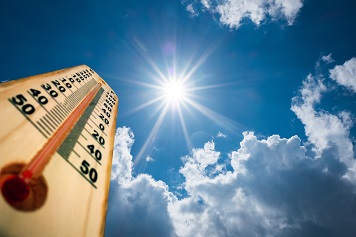Several days after the United Nations’ (U.N.) Intergovernmental Panel on Climate Change (IPCC) issued the latest of its reports on the global consequences of climate change, President Donald Trump surprised observers by not dismissing the report’s predictions and warnings. Instead, in a response to a reporter’s question, the president said he intends to “look at” the report while bearing in mind who prepared it.
The president gave no indication that his interest in the report signals any shift in the administration’s lack of interest in rejoining international efforts established in the 2015 Paris Climate Accord to reduce anthropogenic emissions of greenhouse gases (GHGs).
A clearer expression of the administration’s position on GHG emissions and energy development was contained in a statement by a White House spokesperson, who noted that from 2005 to 2017, U.S. carbon dioxide (CO2)-related emissions declined by 14% while global energy-related CO2 emissions rose by 21%. This reduction, the spokesperson continued, was made possible “through the development and large-scale deployment of new, affordable, and cleaner technologies to capitalize on our energy abundance.”
Comparison with 2°C
The IPCC report, called Global Warming of 1.5°C, provides an exhaustive assessment of the wide range of effects that can be expected across the planet should the average global temperature increase by 1.5°C (2.7°F) over preindustrial levels by 2030. According to one IPCC official, the average global temperature has already increased by 1°C. This, the official says, is producing more extreme weather, rising sea levels, and diminishing Arctic ice, among other changes.
The report compares the effects a 1.5°C increase would produce with what can be expected should the average global temperature increase by 2.0°C (3.6°F). In the Paris Accord, the world’s nations committed to holding the increase in the global average temperature to “well below” 2°C above preindustrial levels while pursuing efforts to limit the rise to 1.5°C. Under the Accord, the IPCC was invited to produce a special report on what kinds of effects would result from a 1.5°C temperature increase. The report makes it clear that while a 1.5°C increase is preferable to a 2°C rise, the smaller increase will produce detrimental effects.
“Thermal expansion of the oceans, resulting from delayed ocean mixing, means the sea level will continue to rise even if the global temperature is limited to 1.5°C, but this would be lower than in a 2°C world,” says the IPCC. “Ocean acidification, the process by which excess CO2 is dissolving into oceans and making them more acidic, is expected to be less damaging in a world where CO2 emissions are reduced and warming is stabilized at 1.5°C compared to 2°C. The prospect for coral reefs in a 1.5°C world of less damaging than that in a 2°C world.”
The predicted loss of coral reefs is dire under either scenario—70% to 90% loss with 1.5°C warming and near disappearance, more than 99% loss, with 2°C.
Seeking Equity
As the IPCC has emphasized in previous reports, to limit warming to 1.5°C above preindustrial levels, the world must transform in a number of complex and connected ways.
“Examples of actions include shifting to low- or zero-emission power generation, such as renewables; changing food systems, such as diet changes away from land-intensive animal products; electrifying transport; and developing green infrastructure, such as building green roofs or improving energy efficiency by smart urban planning, which will change the layout of many cities,” states the IPCC.
The IPCC also voices concern about the disproportionate impact rising global temperatures have on poor and vulnerable populations. The issue of equity impacts how responsibility is apportioned globally. The report points to current examples of pathways that show that it is possible to reduce poverty and inequalities while limiting warming to 1.5°C. Such examples “provide guidance on moving towards socially desirable, equitable, and low-carbon futures,” says the IPCC.
The IPCC report is at http://www.ipcc.ch/report/sr15.

